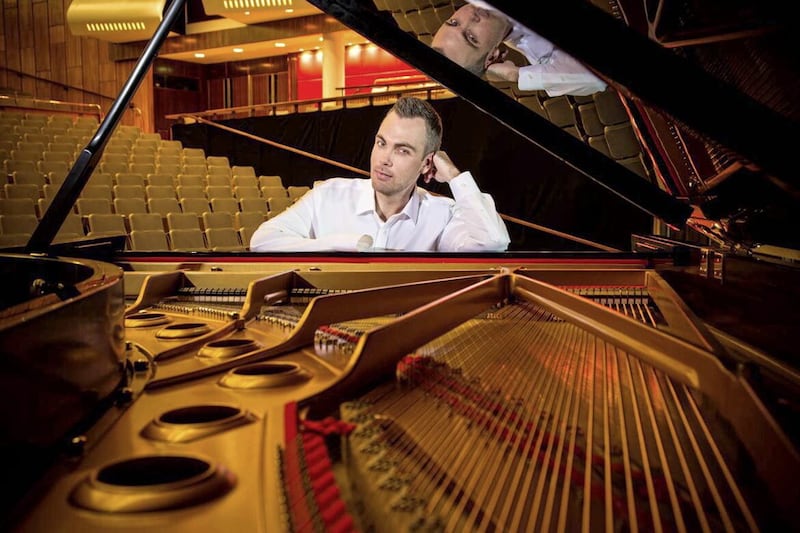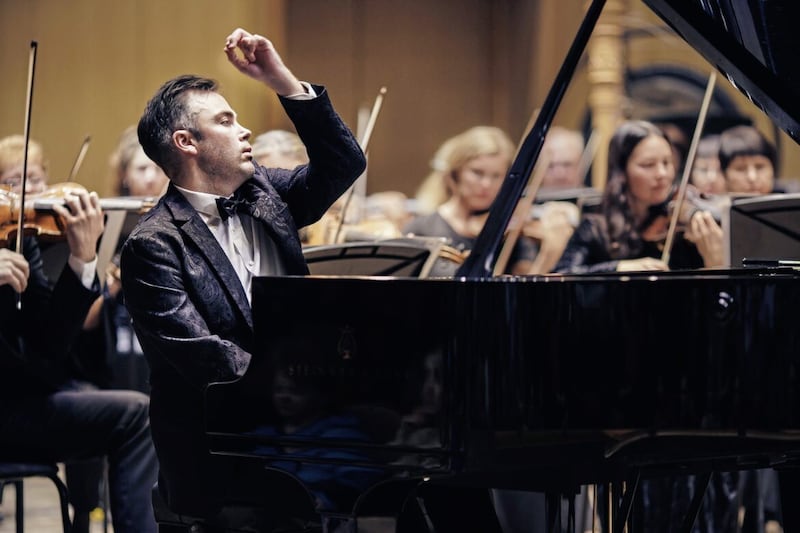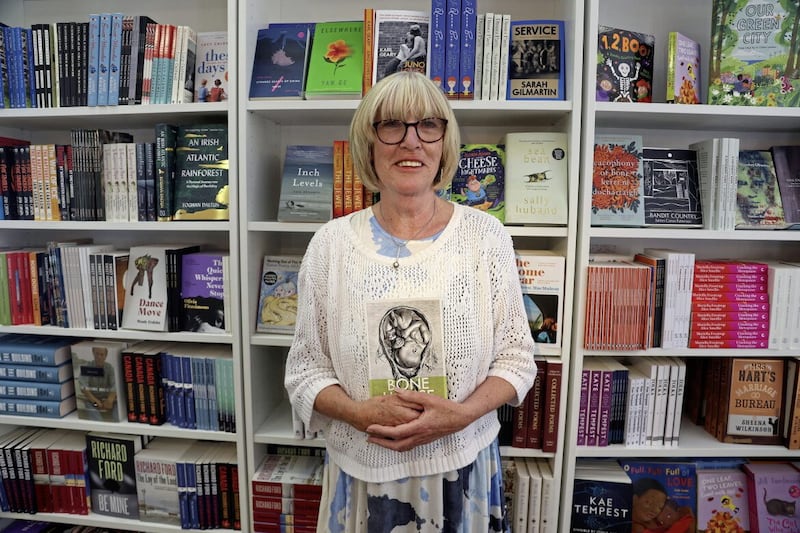THE first time Nicholas McCarthy noticed his right hand missing was a sort of revelation – not because, as a bright and boisterous five-year-old he hadn't been aware of the absent appendage of course, but because someone else had had the nerve to point it out.
"That's children for you," reflects the successful pianist – and artist-in-residence at next month's Belfast International Arts Festival – with good humour.
"I had been playing with my little group of friends in our nice little cul-de-sac when my friend, Aaron, suddenly went: 'Oh, Nicholas, what has happened to your arm?' I had been friends with him for two years and he had never noticed before.
"I told him very matter-of-factly: 'I was born like that, Aaron,' and he just shrugged and carried on because that's what kids do. My mum reminded me of this story the other day and said I had been quite affronted to have been asked about my arm – I think because it was just normal to me."

Acceptance has always been a key factor in McCarthy's psyche and that, along with a singular drive and passion for pianoforte, led him right to the hallowed doors of the Royal College of Music and straight into the history books as its only one-handed graduate pianist.
Only starting to play left-hand repertoire after an unexpected musical epiphany at the "rather late" age – late in the highly competitive world of classical music, at any rate – of 14, he went on to confound his peers, parents and professors with a prodigious talent which not only thrills his listeners today, but, just as importantly he believes, inspires other children with a disability to never give up.
"I really don't think if I had been born with two hands that I would have been as successful a pianist," mulls the Colchester-based musician who was signed to Warner Classics in 2015 not long after a gig with Coldplay at the London Paralympic Games closing ceremony in 2012 enthralled half a billion viewers and attendees.
"I really don't think I would have had the drive, to be honest, especially with starting out at the relatively late age of 14.
"Playing one-handed is more about stamina – to play left-hand repertoire is about creating an illusion that there are actually two hands at work. I almost want your ears to not be believing your eyes and in order for me to achieve that – the two-handed sound, if you like – I have to travel very, very fast up and down the piano, so it's a great spectacle, I think, for the audience."

He was already playing concerts and undertaking some tours during his third year at RCM, but it was only after the stint with Coldplay that his international career really took off.
Read more:
Mark Kermode on Cinemagic Film Night and love of Belfast
Newry woman transforms body and mind following personal heartache
Are you getting enough of vitamin D, the sunshine vitamin?
"I was really very lucky," he says, modestly. "Suddenly, I was receiving invites to places like South Korea and Japan. I was all over the place and I had only just graduated.
"It was unbelievable, really, for someone born without a right hand and whose parents were not at all musical – although I do have an Irish grandfather from Cork who played the squeeze box."
It all goes back to an "epiphany moment" as a teenager when he felt "transported" after hearing a friend play a Beethoven sonata.
"It was like an out-of-body experience," he recalls, "which I had never experienced up until that moment. It was as if everything switched on in my mind and there was this clarity and I immediately knew what I was meant to do with my life."
He duly went home and announced to his stunned parents that he was going to be a professional concert pianist and would they go out and buy him a piano as soon as possible, please. Both were, McCarthy says fondly, extremely supportive but initially invested in a keyboard just the same.
Describing his life as another "overcoming-adversity-kind-of-story", he now also gives motivational talks "to share the positivity" that anything can be possible, "even when you have doors slammed in your face".
For his younger self, one of those metaphorical doors was when, while in the middle of his A-levels, a teacher at a Saturday music school bluntly told him not to waste his or anyone else's time and to give up any thoughts of a professional career as a pianist.
"That was a tough time because when you're faced with negativity like that, and from an elder, someone you respect, then obviously self-doubt can creep in, but in the end, it just made me more determined," says McCarthy, who is much too nice for any triumphant 'I told you so' comebacks.
His career today is all he had ever hoped it could be and after a keynote speech, concert and workshop with young musicians in Belfast, there is a meeting to fit in with his record label to discuss the next album project and a concert in the US.
Next year's highlights already in the diary include his Southbank Queen Elizabeth Hall debut in London (March) and a highly anticipated performance with the Royal Philharmonic Orchestra in June.
For events like these there is certainly a wealth of left-hand-alone repertoire to choose from, with many famous compositions written after the First World War when "huge" numbers of soldiers returned from battle with missing limbs.
"There is a really interesting history regarding left-hand repertoire," McCarthy enthuses. "In fact, there is a career's worth of stock – about 3,000 solo works and 32-and-counting for piano concertos.
"When I first started, the famous pianist, Paul Wiggenstein, was my inspiration – his is a truly amazing triumph-over-adversity story.
"He lost an arm during the war and instead of giving up – he had only just given his two-handed concert debut – he came back and commissioned all the leading composers of the day, including my favourite Ravel and Benjamin Britton pieces which I am playing in Belfast with the Ulster Orchestra, to write for left hand alone.
"Really, without him, I wouldn't have access to so many amazing repertoires and it would be very difficult to have a career. Today, I get so many messages from parents and children saying I have encouraged them to take up the piano and that fills me with so much joy because now it is my turn to provide the hope and inspiration."
Nicholas McCarthy will be giving a keynote address on leadership at the Ulster University on October 19, followed by a concert with the Ulster Orchestra at the Ulster Hall on October 20. There will also be a free concert at Ulster University alongside Acoustronic, the Derry-based ensemble of young musicians, on October 27. All events are part of this year's Belfast International Arts Festival, belfastinternationalartsfestival.com








